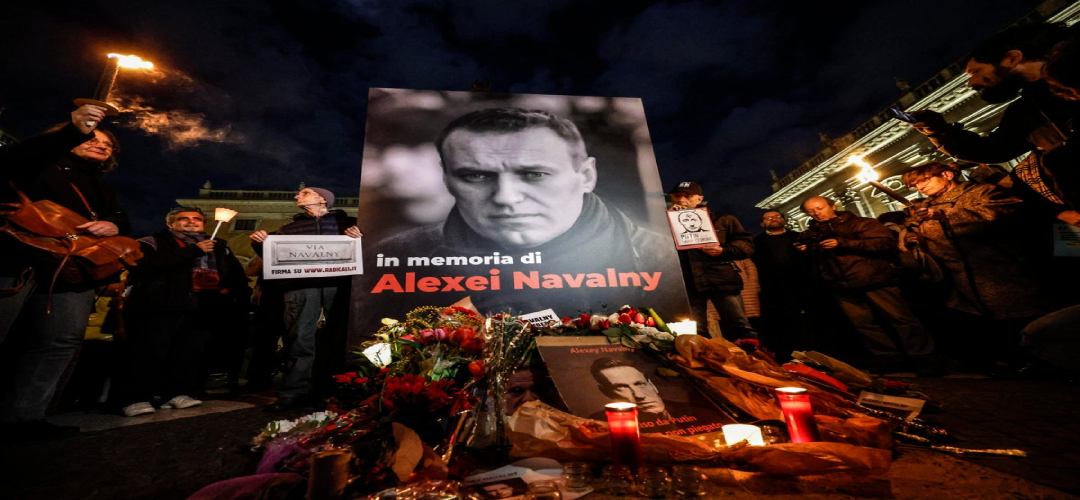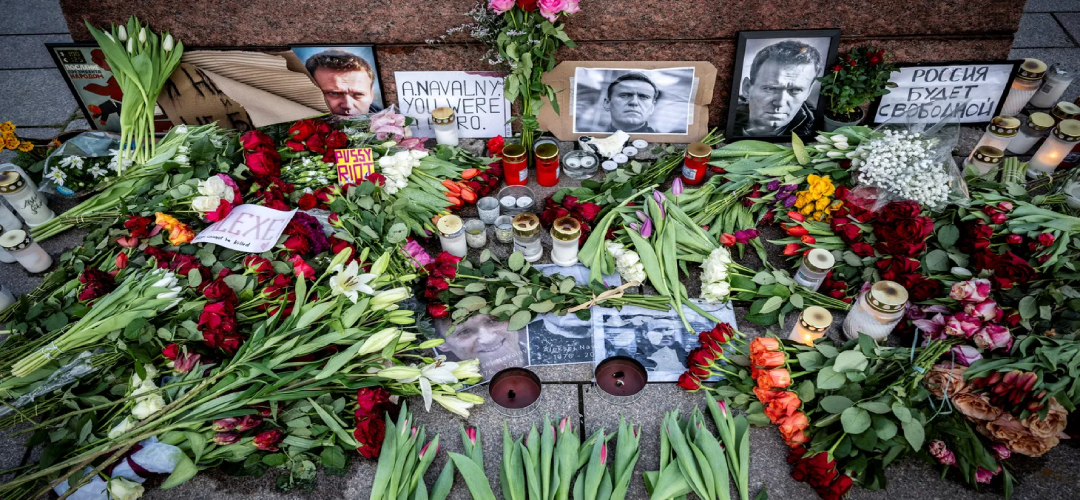Death in Siberia
February 24, 2024 | Expert Insights

The sudden death of Alexei Navalny, Russia's most prominent opposition figure, on February 16th, 2024, casts a long shadow on the upcoming presidential election and the future of the country's opposition movement.
This event shrouded in uncertainty and accusations of foul play, demands a closer look at the events leading up to it and the potential consequences it may unleash.
Background
Navalny's journey as an anti-corruption crusader is well recorded, especially by the Western media out to pin down the Kremlin. His relentless exposure of the alleged government corruption, particularly through his Anti-Corruption Foundation, did not win him many friends in Russia's higher echelons of power. In 2020, he narrowly survived a near-fatal poisoning with Novichok, a nerve agent, which many alleged was state-sponsored.
Despite this attempt on his life, Navalny defiantly returned to Russia in 2021. It was a risk he took, fully conscious of its consequences. So, it was not surprising that he was arrested almost immediately. However, from his prison cell, Navalny's voice remained undimmed. He continued to mobilize his supporters, advocating for strategic voting against pro-Kremlin candidates and urging participation in the upcoming presidential election.

Analysis
Navalny’s death potentially throws a wrench into the carefully constructed strategy of the weak political opposition in the country. The charismatic leader who embodied the hopes of many Russians for a more democratic future is gone, leaving a void that will be difficult to fill.
Examining the potential impact of Navalny's legacy and the challenges faced by the opposition requires a nuanced understanding of the current landscape. Navalny's charisma and unifying presence held together a diverse coalition of opposition groups, each with distinct ideological leanings. His absence creates a leadership vacuum, and fragmentation within the opposition is a real possibility.
The immediate impact on the opposition is likely to be multi-pronged. The movement may face internal fragmentation as different groups with varying ideologies grapple for leadership. The Kremlin might intensify its crackdown on dissent. This could lead to apathy among voters, disillusion with the electoral process, and fear of reprisals. Such a scenario was evident in the 2019 municipal elections, where voter apathy significantly weakened the opposition. In 2020, Navalny's "Smart Voting" initiative, advocating for tactical voting against pro-Kremlin candidates, saw diverse opposition groups work together successfully in regional elections.
The upcoming presidential election, scheduled for March 16th and 17th, will serve as a crucial test of the opposition's strength and the public's mood.
If Navalny can be projected as a martyr for the cause of Russian democracy, it can trigger public support and solidify opposition sentiment, as seen in Hong Kong after the death of pro-democracy activist Chow Tsz-Lok. Navalny's meticulously documented exposes of corruption resonated deeply with many Russians. While his death may initially lead to fear and apathy, there's potential for a long-term erosion of trust in the regime. Similar to the Panama Papers' impact on public perception of global corruption, revelations about Navalny's death could fuel public discontent.
However, the current dispensation in the Kremlin is well entrenched and experienced enough to handle any credible challenge to President Putin's political primacy.
Yulia Navalnaya, his wife, currently living outside the country, has said that she wants to "build a free Russia" but has yet to spell out her plans or say where she will be based. It is not clear if she would like to mirror the role played by Svetlana Alexievich, wife of assassinated Belarusian journalist Pavel Sheremet. Since the death of Mr Navalny, she has been making the rounds of all influential Western capitals and being welcomed with almost state-like protocol.
The international community has a crucial role to play. Outrage has been swift and vocal. Western leaders have condemned Navalny's death, laying blame squarely at Putin's feet. The UK summoned the Russian ambassador, while the EU declared Russia "solely responsible." President Biden has announced a fresh package of nearly 500 new sanctions on Russia, targeting Russia’s financial sector and military-industrial complex.
However, these pronouncements echo hollowly against the backdrop of inaction. In 2021, President Biden warned of "devastating" consequences for Russia if Navalny died, yet what concrete actions have followed?
Fear of Russian escalation, including a nuclear response, has long hamstrung Western powers. While caution is understandable, it has often tipped into paralysis. U.S. aid to Ukraine remains stalled, and NATO allies grapple with filling the gap.
The international community's ability to directly influence Russia's internal affairs is limited. However, imposing sanctions and exerting diplomatic pressure can still send a crucial message even if they do not deliver immediate results.
Assessment
- For any neutral observer, the timing of Navalny's sudden demise would seem incongruous considering the fact that elections were imminent and he was not an active player in the political arena, having been safely isolated in remote Siberia. However, it is difficult to ascertain the true circumstances of his tragic death in light of the opposing narratives swirling around in cyber space.
- The international outcry, spearheaded by the West, was expected. For years since his initial poisoning, the Western media has put his case in the spotlight and used it as a pressure point to create gaps between the powers in the Kremlin and the public. His death under unexplained circumstances creates grounds for an even stronger push from Russia's Western adversaries to tie down the Putin regime, even as Ukraine steadily loses ground to the Russians in the ongoing war.
- Whether the opposition can unite, effectively strategize and overcome the Kremlin's tactics will determine the direction of Russia's political landscape. The future remains uncertain.








Comments